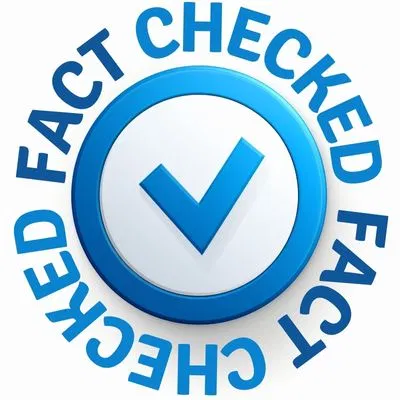The Secret to Powerful SEO Content Writing: 2023 Best Practices and Tips

Published September 26, 2023
In a study, 56% of surveyed consumers have purchased from a business after reading their blog. Most marketers say that content writing generates a big return on investment. It’s no secret that top-performing contents in the search engine are most successful. They shape the business they represent. They gather attention, traffic, and, more importantly, sales.
If you’re an entrepreneur on the net, you might want to leverage SEO content writing. There’s no better way to stand out globally in search engines than creating SEO articles. This article will reveal the secret to powerful SEO content writing. We’ll discuss what it is, the importance of it, its elements, and the best industry practices and tips you should know about. Gather your attention, eliminate distractions, and keep reading to be educated.
What Is SEO Content Writing?
SEO writing is the course of writing and publishing content to achieve higher rankings in search engines’ search results. It involves leveraging relevant keywords in your content. It also matches search intent. Further, it structures the whole content for readability, among other things.
By writing articles for SEO, you can give search engines more insight into what your page is about. Google, for instance, can use them to rule whether your page is important to a user’s search inquiry. If the page is relevant and valuable to users, Google will likely rank it.
Importance of SEO Content Optimization
1. Increased Organic Visibility
When you optimize articles for SEO, search engines will improve your organic visibility. You make your content more relevant in search engines. In turn, your website will lead to higher rankings. You will also gain more traffic to it.
2. Improved User Experience
SEO content optimization involves creating high-quality, relevant, and engaging content that satisfies user intent. By fixating on user needs and preferences, you provide better user experiences. It will gather visitors to your website, and they will stay for longer. It will also reduce bounce rates. It makes way for higher engagement. It also increases conversions and, finally, better customer satisfaction.
3. Higher Search Engine Rankings
SEO content writing can help websites rank higher in SERPs. SERPs stand for search engine result pages. When search engines recognize well-optimized write-ups, they are more likely to rank higher for appropriate search queries. It leads to increased visibility, credibility, and organic website traffic.
4. Targeted Audience Reach
Content optimization also allows businesses to target specific keywords and topics. These keywords and topics are aligned with their audience’s interests and search queries. In turn, companies can attract and engage with their ideal customers. It’s vital for boosting chances of conversion and customer retention.
5. Long-Term Results
Properly optimized content also unlocks long-lasting benefits. Once content ranks well in search engines, it generates traffic and leads over time. It removes the need for ongoing advertising or promotion. For this fact, SEO content optimization is a valuable long-term investment for businesses.
6. Competitive Advantage
SEO writing gives businesses an edge over their competitors. By appearing higher in search results, they gain more visibility. They attract more potential customers. Finally, they can establish themselves as leaders in their industry.
Regular Article Writing vs. SEO Content Writing
The primary difference between regular article writing and SEO writing is the latter is designed to improve the chances of discovering your content on search engines. Regular article writing simply creates content for humans to provide them with information. Typically, the one that they would want to read.
Regular article writing is generally created with zero keyword research. These are typically written for readers who are human. When Google finds any keyword, it can be great. Yet, it is accidental. Creating regular content is an excellent approach. However, it is a risky step. Moving your way up, you need a proper promotional strategy to ensure your blog will likely receive a reading.
Regular article writing may be created out of passion. It may be for the sole purpose of spreading theories and ideas naturally. However, in contrast, SEO content is created for marketers to get a ranking. SEO content is leveraging human interaction and attention. It makes content for both human readers and search engines.
Elements of SEO Writing
- Keyword Research
- Keyword Placement
- High Quality and Relevant Content
- Meta Tags
- Headings and Subheadings
- Internal and External Linking
- Readability and User Experience
- Image Optimization
- Social Sharing
- Regular Updates
How to Optimize Article for SEO: 10 Best Practices
1. Match Search Intent
Search intent defines a user’s purpose when they look for something. For instance, someone who types “best shoes for running” wants to find the top running shoes. Google understands this and shows the users articles concerning it. It also displays a “People Also Ask” (PAA) section about running shoes.
Google pays a lot of attention to teaching algorithms to correctly evaluate search intent. It encourages content creators, SEO writers, and web admins to publish content that fully answers users’ questions.
The content format you pick, the message you convey, and the call to action you apply all anchor on the search intent of the keyword you’re eyeing to rank for.
There are four kinds of search intent:
- Informational. The user searches for information on a topic.
- Navigational. The user searches for a specific website.
- Commercial. The user researches options for a product or service.
- Transactional. The users search for a particular product or brand.
2. Perform Keyword Research
Optimizing your content for particular keywords is critical. It helps search engines showcase that content for relevant search queries. In doing so, you increase organic traffic to your site and grow your audience.
Search engines use keywords to comprehend content. Thus, optimizing your content means incorporating relevant keywords.
How to do keyword research?
- Choose a primary keyword.
In SEO writing, the primary keyword is the main keyword you plan to optimize. It should denote the main focus of each of your articles. Begin researching by plugging your main topic into a keyword research tool.
Targeting long-tail keywords is a great strategy. They refer to more specific keywords that tend to have lower search volume. However, they have high conversion rates.
- Choose secondary keywords
Secondary keywords discuss related subtopics in your article. They support your primary keyword. It doesn’t take the article in a new direction. Ensure the secondary keywords match your search intent. Moreover, review its search volume. It will also help if you check its keyword difficulty.
3. Look for topics relevant to your audience.
Google’s algorithm rewards articles that are helpful for users. Creating valuable and understandable write up is a primary aim for SEO content writing.
You must know who your target audience is. From there, they figure out what topics matter to them. This way, you can assume their problems. You can then make content that yields solutions.
You can use a topic research tool to get you on the right foot. It aids in finding your audience’s interests. It gives a wide range of related topics along with popular article titles. It also provides questions people ask about your primary keyword and associated issues.
4. Create a well-optimized title tag.
Title tags are pieces of HTML code. They define the page title for search engines. They are viewed in search engine results, social media posts, and browser tabs.
Always incorporate your target keyword in the title. It is a confirmed ranking factor. It also influences whether users decide to tap on your page.
Consider search intent too. Select a title that communicates what dilemmas users can solve, only by reading your article. Moreover, keep it short. Titles may get cut off, especially in mobile search results. Aim for 60 characters or less.
Finally, be unique and specific. The title tag should be distinctive to your page. It must also tell a user what kind of content they will find when they click.
5. Optimize the meta description.
A meta description is an HTML tag. It defines your website’s content. It is seen below your page’s title. Meta descriptions are a significant part of SEO writing. They do not directly impact ranking. Instead, they influence whether a user clicks on your page.
Include your target keyword in it. Doing so will flag users that your page covers a discussion they want to learn about.
- To optimize your meta description, do the following:
- Keep it brief. Maintain one to two short sentences. Mobile devices cut off meta descriptions. It is after 120 characters.
- Use an active voice. Active voice aids in saving your character. It also clearly communicates your intended message.
- Add a call to action. Incorporate CAT phrases that may compel a user to click.
6. Use headers strategically
Headers are a fantastic way to grab a user’s attention. They improve your page’s readability. Further, they help Google understand the content your page discusses. It allows the search engine to surface your content for the right keywords.
Headings permit users to scan web pages quickly. It helps cite the information they need. It supports user experience.
Begin by writing a catchy title. It must regard your target keyword. It will be your H1. Next, arrange the rest of your page with relevant H2 and H3 subheadings. H2 subheadings support your H1. H3 subheadings sustain your H2.
Articles that have proper headings have higher performance. It is in terms of traffic, shares, and backlinks.
7. Structure content for readability
Good structure is a vital element of a high-quality SEO article. No one wants to open a page with one long block of text.
- Keep paragraphs short and scannable. Discuss only one idea per paragraph.
- Divide long sentences. Make them shorter whenever possible.
- Answer user questions. Include it at the very top of your header.
- Highlight vital ideas. Use bold font, quotation marks, or other types of visual emphasis.
- Use a numbered or bulleted list. Doing so will convey lots of information in a concise form.
8. Add visual content
Visual content can communicate complex information quickly. Also, it does well on social media. If possible, use infographics, checklists, and templates. They will help provide value to your audience in a memorable way. They can provide a better user experience. They also enhance on-page behavior signals.
The more valuable, engaging, and relevant the content is, the more backlinks it will acquire. Because you have better content, you’ll get more shares. Backlinks from authoritative websites also signal search engines that your writing is trustworthy.
9. Use internal links
Internal links direct from one page on your website to another folio on your website. When you strategically interlink your article, you can help search engines understand your structure. It also helps them know how your pages relate to each other.
Moreover, it directs users to your site’s other helpful, relevant pages. It can encourage conversions. Internal links are also vital because they pass authority between pages. Authoritative links pointing to your page can boost its ranking.
10. Prefer high-quality links
The amount and quality of links to other websites on your site also matter. They are a part of search engine algorithm calculations. Search engines favor more trusted sites than links from an unknown blog. An article with trusted sources boots its quality.

Frequently Asked Questions About SEO Content Writing
1. What happens when you use too many keywords?
When you excessively and unnaturally repeat keywords in your article, it is keyword stuffing. It is a practice that violates search engine guidelines. It can spark penalties as it is seen as an attempt to manipulate ranking. What you can do instead is focus on creating high-quality and informative content. Make it user-friendly that naturally incorporate relevant keywords.
2. Which technique should be avoided in SEO?
Content spinning refers to reusing or rephrasing existing content to make new versions. It is discouraged because it produces low-quality duplicate content. It leads to harming your ranking and dropping your credibility.
3. What are the common SEO mistakes?
Approaching SEO without a well-defined strategy. It can lead to scattered efforts and missed opportunities for optimization. Producing content that doesn’t align with user intent. The latter can hinder organic visibility and engagement. Finally, it overlooks analytics to track performance. Failing to monitor and analyze website metrics is terrible. It makes it difficult to understand the effectiveness of your SEO efforts. In turn, it makes it challenging to craft data-driven improvements.
4. How do I start SEO for my website?
The first thing that is valuable and highly critical is determining your SEO goals. Do you want to increase traffic? Do you want to improve rankings for specific keywords? Perhaps you want to boost conversions. Define your goals to help you fixate your efforts appropriately.
You should start taking SEO content writing seriously to rank higher on the net. As we’ve established, it has a lot of benefits for businesses. It is a great practice that renders multiple returns. Nothing wrong can come from it.
If you’re just starting, reach out to us. We at Correct Digital are a full-service online marketing agency. We’re industry leaders in Search Engine Optimization. We can provide you with valuable guidance and partnership to boost your business online for endless success.
Hire The Digital Marketing Experts
We take online businesses and turn them into online empires by employing smart digital marketing strategies. Our team of experts are trained in a myriad of marketing skill including SEO to help you rank higher in search results, and ad management to ensure your message gets seen by the people you want. Need a business website that attracts business? We also specialize in website design and online sales optimization to help your business grow like never before.

This Content Has Been Reviewed For Accuracy By Experts
Our internal team of experts has fact-checked this content. Learn more about the editorial standard for our website here.

About The Author
Krizzia Paolyn, is an SEO Specialist and author based in the Philippines. She holds a bachelor’s degree in Psychology. It has always been her passion to share her voice, and at the same time, to encourage others to share their voices as well. You can connect with her on LinkedIn.



